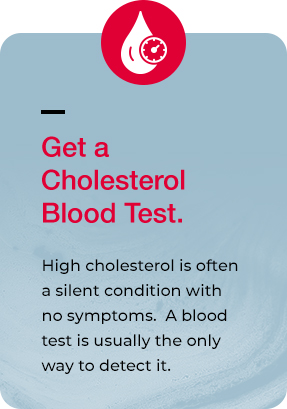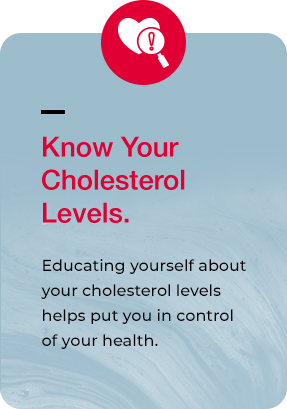When It Comes to Your Heart Health, Test, Don’t Guess.

Too much cholesterol in your blood is bad for your heart and blood vessels. A simple blood test is all you need to check your cholesterol levels.
Knowing your cholesterol levels is an important first step to understanding your risk of developing heart problems in the future. Early detection is key: treating high blood cholesterol can prevent heart disease and stroke.
Your journey to a healthier heart begins by talking to your healthcare provider. Together, you will chart a course to ensure your heart health remains a top priority.



TAKE THE FIRST STEP
Ways to Manage Cholesterol

Transform Your Plate, Transform Your Health
A healthy diet can make a difference. The Portfolio Diet is a way of eating to help lower your cholesterol and risk of heart disease.

Move for
Heart Health
Regular activity is not only good for your waistline, it’s also a key player in improving your cholesterol levels and protecting your heart.

Stop
Smoking
Quitting smoking improves cholesterol as well as blood circulation and lung function. When you stop, you decrease your risk of having a heart attack or stroke or developing heart disease.

Limit
Alcohol
If you drink alcohol, do so in moderation. Too much alcohol can lead to heart problems and stroke.

Get Enough
Sleep
A good night’s sleep is important for heart health. Adults should aim for about 8 hours of sleep each night.

Consider Cholesterol Medications
When lifestyle changes alone cannot reduce high cholesterol, your healthcare provider may suggest medications to help lower your cholesterol and maintain a healthy heart.
